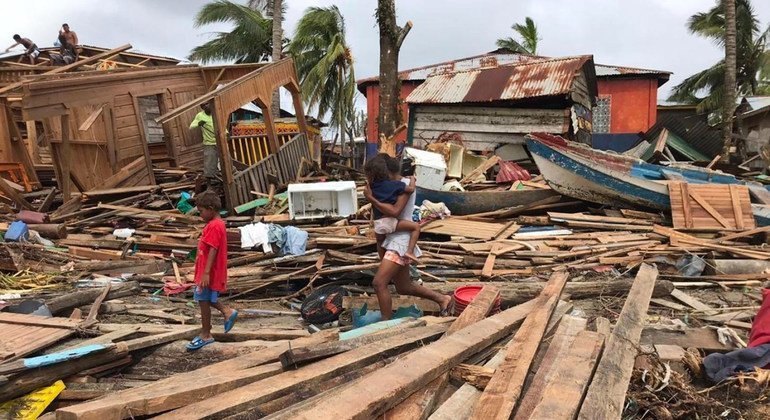Sure! Here’s the translated text into American English:
Natural disasters have been on the rise, causing financial losses that exceed $2.3 trillion annually. This alarming situation was highlighted by UN Secretary-General António Guterres in his message on the International Day for Disaster Risk Reduction, which is observed every October 13. Guterres emphasized that climate change is intensifying these events, jeopardizing decades of progress in social and economic development.
Despite the magnitude of this issue, funding allocated for prevention remains surprisingly low, with only 2% of development aid and less than 1% of public budgets directed toward risk reduction. The Secretary-General warned that this lack of investment in prevention represents a “miscalculation” with devastating implications on both human and economic levels. He highlighted that every dollar invested in resilient infrastructure can save up to four dollars in damages from disasters.
In light of this growing crisis, Guterres urged governments and donors to increase investments in risk reduction and to involve both public and private sectors in decision-making. His call to action aims to foster greater resilience to climate change and build a safer, more equitable future.
In Latin America, the situation is equally concerning. The International Organization for Migration (IOM) and the European Union have launched the “Prepárate+” initiative, which seeks to integrate marginalized groups, such as women and migrants, into disaster preparedness plans in countries like Colombia, Ecuador, Bolivia, and Chile. María Moita, regional director of the IOM, noted that including these groups in preparedness processes has proven to strengthen communities.
Despite advances in disaster risk management in the region, the IOM has warned that many communities remain vulnerable. A large number of families are unaware of official emergency plans, and trust in institutions is limited. This lack of representation in preparedness efforts disproportionately affects the most vulnerable groups, increasing the human and economic cost of disasters.
Studies have identified positive trends, such as the strengthening of legal frameworks and the growing role of women leaders in disaster preparedness, suggesting that inclusive governance and female leadership are essential for community resilience. The 2025 Global Report on Displacement indicated that more than 83 million people were displaced in 2024, with Latin America being one of the regions most affected by extreme climate events and violence, reinforcing the urgency for inclusive preparedness among governments, communities, and vital organizations to save lives.
Referrer: MiMub in Spanish










